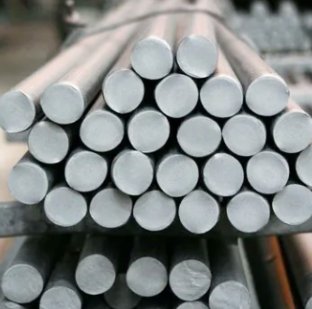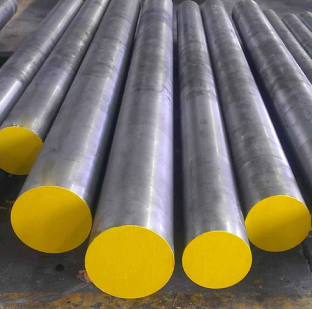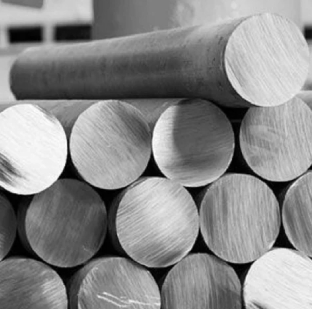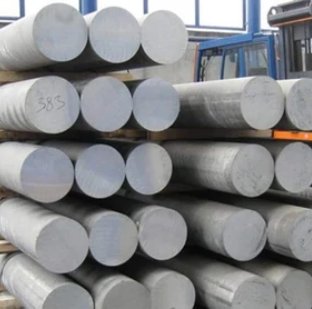Round Bar
A round bar is a cylindrical metal rod that is commonly used in manufacturing, construction, and machining processes. These bars are produced through extrusion or rolling and are typically available in a variety of metals, including steel, stainless steel, aluminum, brass, and others. Round bars are widely used for their versatility and can be found in applications like shafts, pins, bolts, and other mechanical parts.
Applications Uses
- Machining
- Shafts and Axles
- Fasteners
- Construction
- Manufacturing
- Automotive Industry
| Material | MS |
|---|---|
| Grade | En8 |
| Shape | Round |
| Application | Industrial |
| Thickness | 1/2-3inch |
| Length | 6 m |
- Hot Rolling: Round bars are often produced by hot rolling, where the steel is heated and then passed through rollers to shape it into the desired size.
- Cold Drawing: For round bars with finer tolerances or smoother surfaces, the bars may be cold drawn after hot rolling. This process involves pulling the bars through a die to reduce their diameter and improve surface finish.
- Heat Treatment: After production, some round bars undergo heat treatment (like hardening or annealing) to modify their mechanical properties for specific applications.
- Versatility: Can be used in a wide range of applications, from structural to precision machining.
- Strength: Available in materials with varying strengths to suit different engineering needs.
- Ease of Processing: Can be easily cut, welded, or machined into other components.
- Customization: Available in many grades, sizes, and finishes, round bars can be tailored to specific requirements.
- Versatility: Round bars made from carbon steel or alloy steel are very strong and can be used for high-stress applications.
- Machinability: Steel round bars are versatile and can be easily cut, drilled, machined, and welded, which makes them ideal for manufacturing various parts and components.
- Flexibility: Due to their shape and strength, they can be used in a wide variety of applications, from structural work to precision engineering.
- Uniform Surface: Round bars usually have a smooth, uniform surface finish, which makes them suitable for applications requiring high precision and minimal defects.




